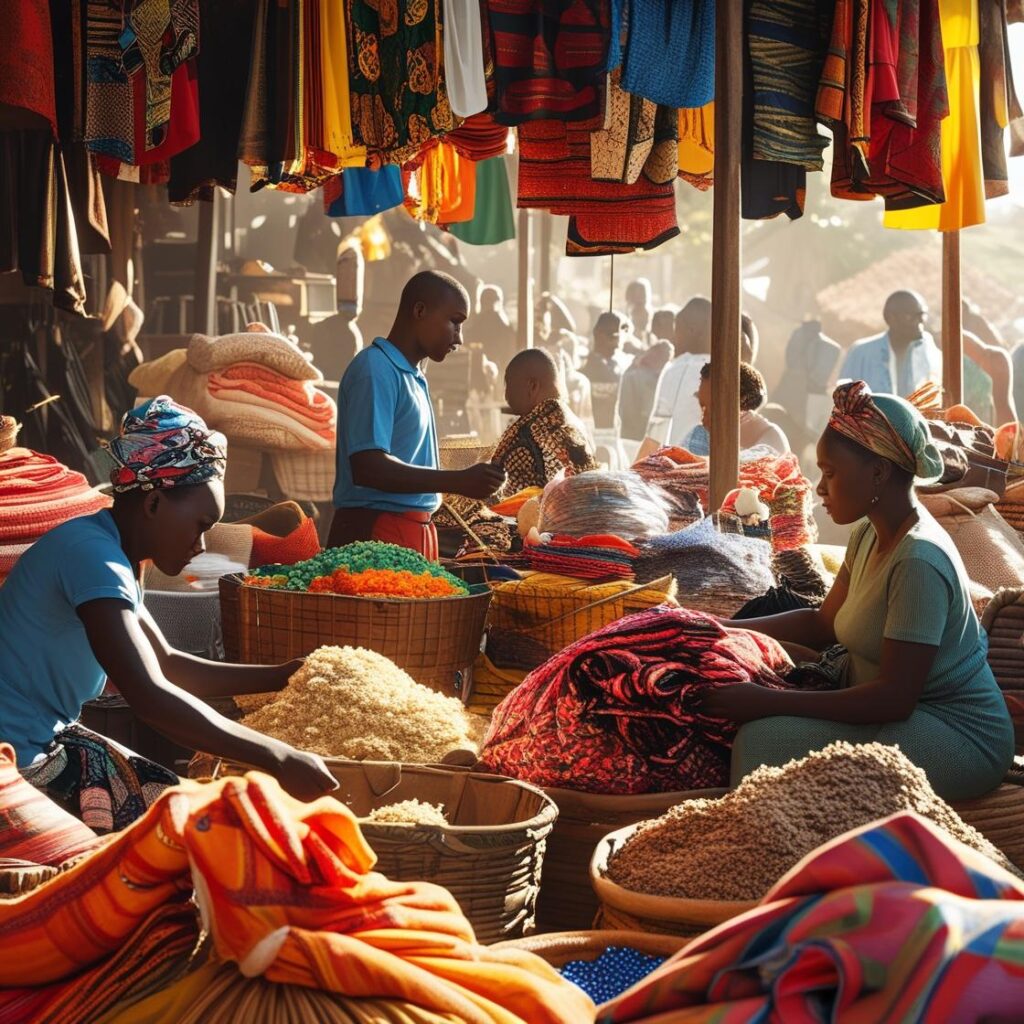Guinea, a country endowed with abundant natural resources and diverse cultural heritage, is increasingly drawing the attention of expatriates and professionals from around the world. Situated on the west coast of Africa, Guinea offers a unique blend of opportunities and challenges for those considering a career move. From the booming mining sector to emerging service industries, understanding the country’s economic, social, and regulatory environment is vital for success. This comprehensive guide delves into everything you need to know about working in Guinea—from industry landscapes and legal requirements to cultural nuances and practical tips.
اقرأ أيضاً: العمل في أوزبكستان
1. Economic Landscape of Guinea
Guinea’s economy is heavily reliant on its vast mineral wealth, particularly bauxite, of which it holds the world’s largest reserves. Mining accounts for a significant portion of GDP and export revenues. In recent years, efforts to diversify the economy have spurred growth in agriculture, fisheries, and small- to medium-sized enterprises (SMEs). Despite periodic political instability, the government has launched infrastructure projects aimed at improving roads, ports, and energy supply, which are essential for sustainable economic development.
اقرأ أيضاً: العمل في سانت لوسيا
Key Points:
اقرأ أيضاً: العمل في ألمانيا
- Mining Dominance: Bauxite, iron ore, gold, and diamonds.
- Diversification Efforts: Agriculture (rice, coffee, cocoa), fisheries, and SMEs.
- Infrastructure Development: Roads, hydroelectric projects, and port expansions.
2. Key Industries and Employment Opportunities
Mining and Extractives
The bulk of professional openings in Guinea revolve around mining operations—ranging from geologists and engineers to environmental specialists and logistics managers. International mining companies often recruit expatriates for senior technical and managerial roles.
اقرأ أيضاً: العمل في مصر
Agriculture and Agro-Business
With arable land covering roughly half of the country, agriculture represents another growth area. Expertise in agronomy, supply chain management, and agro-processing is in demand to bolster food security and export potentials.
اقرأ أيضاً: العمل في اليونان
Energy and Infrastructure
Hydropower projects on the Niger and Konkouré rivers have created roles for civil engineers, project managers, and environmental consultants. The energy sector also needs professionals in renewable technologies as the country explores solar and wind power options.
اقرأ أيضاً: العمل في النمسا
Services and ICT
The service sector, though still nascent, is expanding in urban centers. Teaching positions in international schools, hospitality management, banking, telecommunications, and IT support roles are increasingly available, particularly in Conakry.
اقرأ أيضاً: العمل في بليز
3. Work Culture and Etiquette
Understanding Guinean work culture is crucial to building successful professional relationships.
اقرأ أيضاً: العمل في روسيا
- Hierarchy & Respect: Decision-making often follows hierarchical lines. Address senior colleagues with titles (e.g., “Monsieur,” “Madame”) unless invited to use first names.
- Punctuality: While meetings may not always start on time, arriving punctually shows respect.
- Relationship-Building: Personal rapport is valued; expect informal discussions about family and local events before business matters.
- Communication Style: Guineans typically communicate indirectly to maintain harmony. Reading between the lines and adopting a patient listening approach can prevent misunderstandings.
4. Legal and Visa Requirements
Foreign nationals must secure the appropriate visa and work permit before commencing employment in Guinea.
اقرأ أيضاً: العمل في لوكسمبورغ
- Entry Visa: Obtain from a Guinean embassy or consulate; requirements vary by nationality.
- Work Permit: Employers usually sponsor applications, submitting contracts and proof of necessary expertise to the Ministry of Employment.
- Residence Card (Carte de Séjour): After arrival, apply within 30 days to legalize your stay for the duration of your contract.
- Tax Identification Number: Register with tax authorities; expatriates often face different withholding rates.
Processing times can range from several weeks to months, so planning well in advance is essential.
اقرأ أيضاً: العمل في بلجيكا
5. Language and Communication
Official Language: French
French is the official language of administration, education, and business. Proficiency in French is often a prerequisite for professional roles, particularly in management and government-related positions.
Local Languages
Multiple indigenous languages, such as Soussou, Malinké, and Peul, are widely spoken. Learning basic greetings in these languages can go a long way in establishing goodwill.
Business Correspondence
- Written Communication: Use formal French in emails and reports.
- Meetings: English is common in international firms, but presenters should confirm the working language in advance.
6. Living Conditions and Cost of Living
Housing
Accommodation ranges from modest apartments to luxury villas. Expatriates often choose gated compounds with reliable power and water supply. Monthly rents in Conakry can span from USD 500 for a basic one-bedroom to over USD 3,000 for high-end, furnished homes.
Utilities and Services
Frequent power outages necessitate backup generators. Many expatriates install water tanks due to intermittent municipal water supply. Internet speeds have improved but remain less consistent than in developed countries.
Transportation
Traffic in Conakry can be challenging. Hiring a private driver is common among expats. For short distances, motorcycles (okadas) or shared taxis are inexpensive options.
Daily Expenses
Groceries, dining out, and imported goods carry a premium. Weekly markets offer fresh local produce at lower prices. A single person’s monthly living expenses (excluding rent) often fall between USD 600 and USD 1,000.
7. Safety and Health Considerations
Security
While large-scale violence is rare, petty crime—such as pickpocketing and bag snatching—is reported, especially in crowded areas. Expat compounds often employ security guards and gated perimeters for added protection.
Health Infrastructure
Medical facilities in Conakry include a mix of public hospitals and private clinics. For complex procedures, many expats travel to neighboring countries or Europe.
Vaccinations and Preventive Measures
- Required: Yellow fever.
- Recommended: Hepatitis A and B, typhoid, cholera, and meningitis (depending on region and season).
- Malaria prophylaxis is essential; mosquito nets and repellents are highly recommended.
8. Networking and Professional Resources
Chamber of Commerce and Industry
The Guinean Chamber of Commerce organizes trade fairs, seminars, and networking events that connect local and international businesses.
Expatriate Communities
Online forums and social media groups (e.g., “Expats in Guinea” on Facebook) provide peer support, housing leads, and advice on daily life.
Professional Associations
Engage with industry-specific bodies, such as the Guinea Mining Association or the Agro-Business Association, to stay updated on sector developments and job postings.
9. Challenges and Solutions for Expats
Cultural Adjustment
Challenge: Adapting to indirect communication and a different pace of life.
Solution: Cultivate patience, embrace local customs, and invest time in language learning.
Infrastructure Limitations
Challenge: Unreliable utilities and transport.
Solution: Negotiate housing with backup generators; use reputable transport services and plan travel times conservatively.
Bureaucracy and Delays
Challenge: Slow government processes for permits and licenses.
Solution: Engage experienced local legal counsel or relocation services to expedite paperwork.
10. Tips for a Successful Career in Guinea
- Local Partnerships: Align with Guinean professionals who understand the regulatory landscape.
- Cultural Sensitivity: Respect local norms in dress, communication, and negotiation.
- Continuous Learning: Stay informed about political developments and market trends.
- Flexibility: Be prepared for sudden changes in policy or project timelines.
- Community Engagement: Participate in corporate social responsibility (CSR) initiatives to build trust and goodwill.
Conclusion
Working in Guinea presents a compelling opportunity for professionals willing to navigate its dynamic economic sectors and cultural richness. Success hinges on thorough preparation, cultural adaptability, and strategic networking. With the right approach, a career in Guinea can be both rewarding and transformative.



